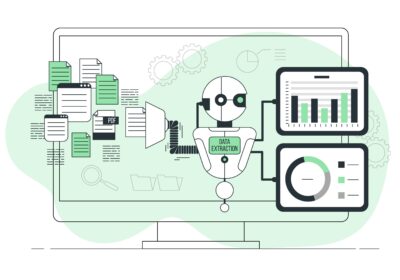Production planning is a critical aspect of manufacturing, particularly for small and medium-sized companies (SMEs). It involves coordinating the various elements of production, such as materials, labor, and machinery, to ensure efficient and cost-effective operations. This blog post will delve into the profound impact of Artificial Intelligence (AI) on production planning specifically for SMEs.
Understanding Production Planning
Production planning is the process of determining what products to produce, when to produce them, and how to produce them. It involves forecasting demand, scheduling production activities, managing resources, and coordinating with other departments such as sales and logistics. For SMEs, effective production planning is crucial for maintaining competitiveness in the market. However, they often face challenges such as limited resources, fluctuating demand, and complex supply chains.
AI has the potential to revolutionise production planning in SMEs. By leveraging machine learning algorithms and predictive analytics, AI can analyse vast amounts of data to make accurate forecasts, optimise resource allocation, and identify potential issues before they occur. This can lead to significant improvements in efficiency, cost-effectiveness, and overall productivity.
AI Applications in SME Production Planning
AI can be applied in various aspects of production planning in SMEs. For instance, AI can be used for demand forecasting by analysing historical sales data and market trends to predict future demand. It can also help manage inventory by predicting when stock replenishment is needed based on sales patterns. Furthermore, AI can assist in scheduling production activities by considering factors such as resource availability, production capacity, and delivery deadlines.
Benefits of AI-Driven Production Planning
Implementing AI-driven production planning can bring numerous benefits to SMEs. These include increased efficiency through automation of routine tasks, improved decision-making through data analytics, cost savings through optimised resource allocation, and enhanced quality control through real-time monitoring and predictive maintenance.
Challenges and Considerations
While AI offers many benefits, SMEs may face challenges when integrating it into their production planning processes. These include a lack of data culture within the organisation, high costs associated with implementing AI technology, a shortage of skilled professionals who can manage AI systems, and potential interoperability issues with existing systems.
Steps to Implement AI in Production Planning
For SMEs looking to integrate AI into their production planning processes, there are several steps they can follow:
- Organize
Factory Calendar: Ensure that all
shifts, machines, and people capacities are accurately represented in the
factory calendar.
- Create a Correct Plan: Include all planned work orders and stock in
the plan.
- Conduct Accurate Simulations: Use simulations to verify predictions made by
the AI system.
- Automate Planning: Implement automated production planning and scheduling using AI.
In conclusion
While integrating AI into production planning may present some challenges for SMEs, the potential benefits make it a worthwhile investment. By leveraging AI technology, SMEs can transform their production planning processes leading to increased efficiency, cost savings, improved decision-making capabilities and ultimately a competitive edge in the market.



